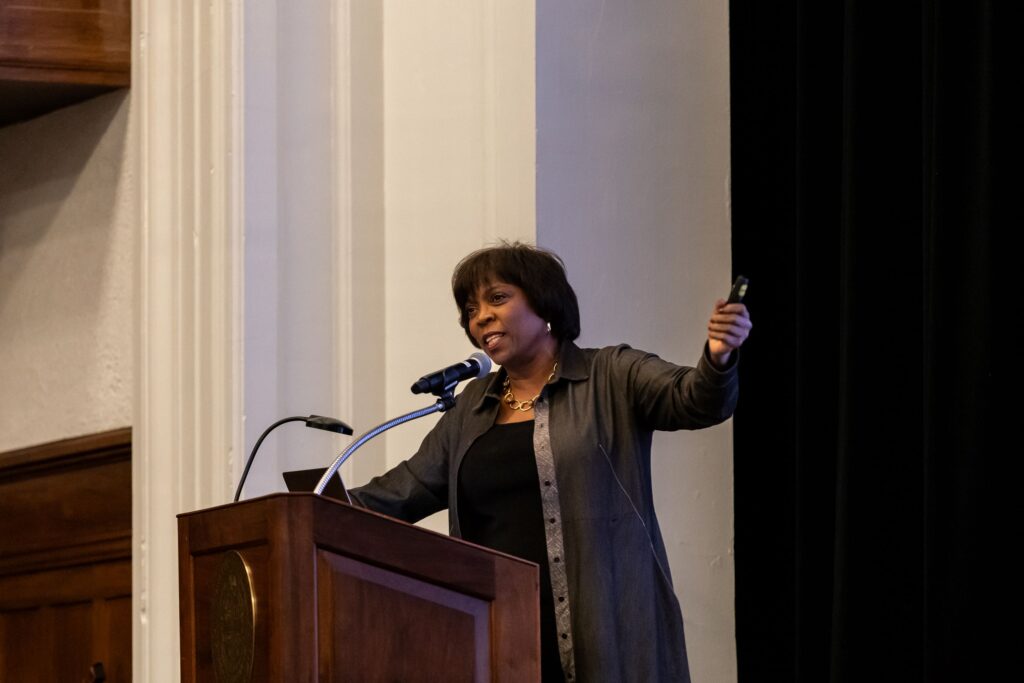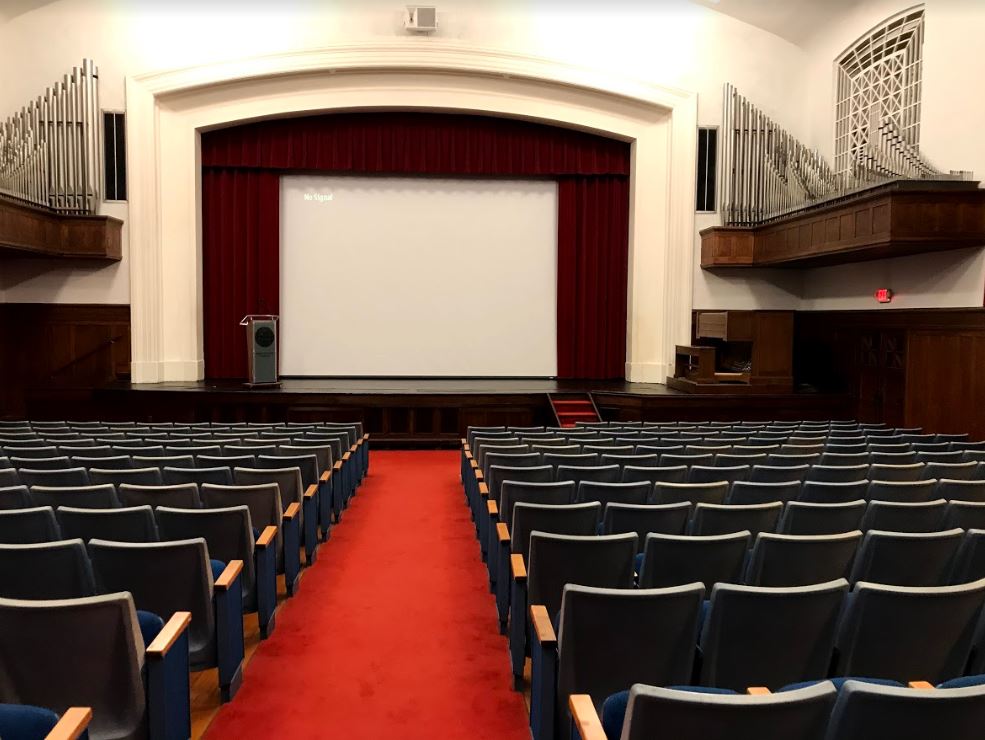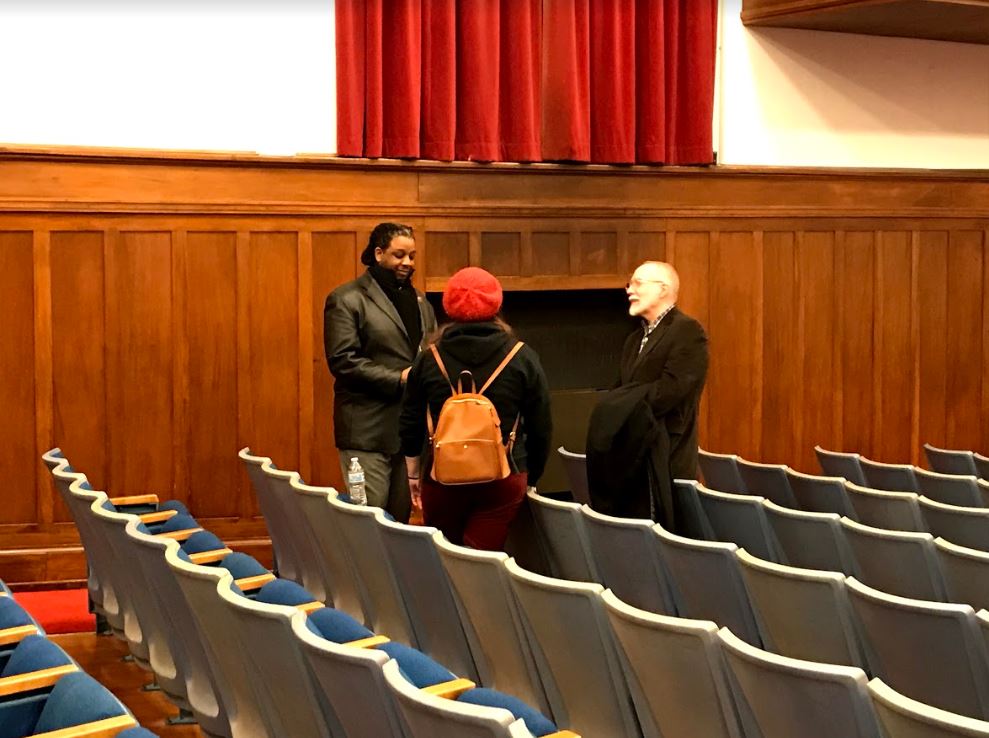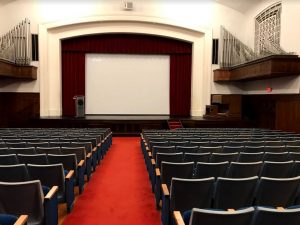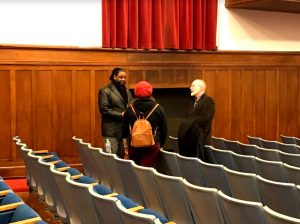Bridgewater Hosts Showing of Civil Rights Documentary “It Is Well”
Featuring the Life of Activist Rev. Bennie Mitchell Jr.
February 4, 2020
Bridgewater, Va – On Jan. 22, Bridgwater College hosted a showing of the documentary “It Is Well” based on the life of a prominent southern civil rights activist named Bennie Mitchell Jr. in Cole Hall. This showing was in conjunction with the other Martin Luther King Jr. Day events set up by Bridgewater’s administration.
Released in 2018 and directed by his son, the documentary was filled with testimonies from the lives of those positively affected by Mitchell’s actions supplemented with vintage footage of his life’s work.
Mitchell was born after a quick montage about Mitchell’s formative years, which included his childhood, time earning his undergraduate and graduate degrees and marriage to his highschool sweetheart. The film mainly focused on his time as a preacher at Connor’s Temple Baptist Church in Savannah, Georgia.
Mitchell was characterized as a very charismatic individual who openly gave sermons on issues of social justice in the pulpit. These sermons were shown to have been widely respected by his community for their often fiery and inspirational nature. Mitchell also garnered the respect of his community through the establishment of integral church services such as the children’s choir which gave the parishioners’ kids a positive creative outlet.
Mitchell became more involved in his community when he pressured Savannah legislators to establish a specific day to commemorate the life of Martin Luther King Jr. This was before the Martin Luther King Jr. Day we have today was recognized by the federal government.
Mitchell did this because he recognized the importance for African Americans to have and celebrate positive role models. Mitchell was able to pressure the Savannah city council to make January 15 the official date by telling the parents in his congregation to boycott their children from attending school.
In addition to directly advocating for government policy, Mitchell endorsed politicians that he genuinely believed would improve the living conditions of the socially or economically disenfranchised. Even though Mitchell faced constant opposition, whatever he gave his seal of approval to would get the support of his congregation, countless community members and local politicians.
These initiatives included supporting African American businesses or providing opportunities for minorities to be more integrated in their schools and communities. Mitchell devoted his whole life to serving Savannah until his death on Tuesday, Feb. 1, 2011. After the documentary was finished, Bennie Mitchell III was present in Cole Hall to answer some questions from the audience.
When asked what it was like to be related to someone who had such an impact, Mitchell III responded that he faced threats from those who were vehemently hostile to his father’s efforts.
Even being around those who agreed with his fathers’ mission, Mitchell III felt as if he had great shoes to fill in terms of expectations being the son of such a renowned activist.
Lastly, when asked how students can make an impact in their communities, Mitchell III said they should “organize with like-minded individuals like my dad did and vote for politicians who will represent their interests in the best ways possible.”


